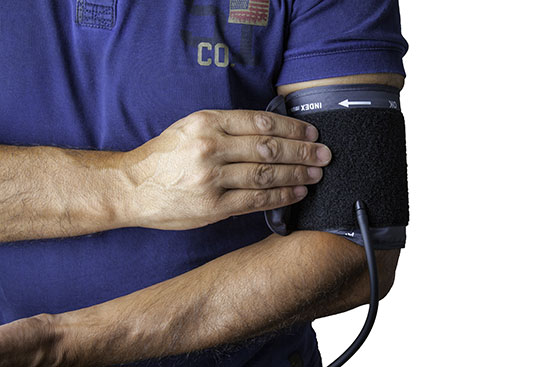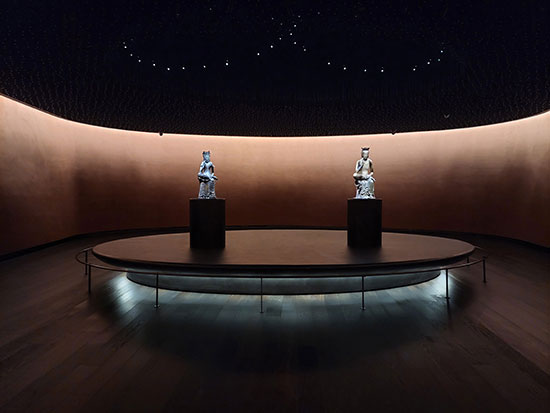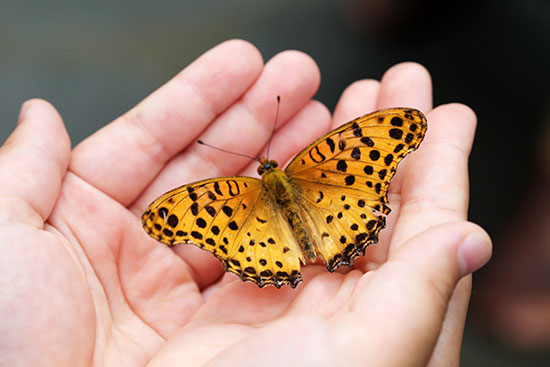-
홈 -> 전문가칼럼[Kim Min-jung Column] - Oriental Medicine’s perspective of COVID-19고동탄(bourree@kakao.com) 기자 입력 2020년 03월 02일 11:54분4,150 읽음
 Written by Kim Min-jung, an oriental medical doctor (Kim Min-jung, chairman of the Oriental Medicine Clinic, Harvard Medical School | Postgraduate Medical Education, Cancer Biology & Therapeutics: High Impact Cancer Research Program, Kyung Hee university graduate school of East-West medical science - Medical Science Masters Degree)
Written by Kim Min-jung, an oriental medical doctor (Kim Min-jung, chairman of the Oriental Medicine Clinic, Harvard Medical School | Postgraduate Medical Education, Cancer Biology & Therapeutics: High Impact Cancer Research Program, Kyung Hee university graduate school of East-West medical science - Medical Science Masters Degree)
Today we have special on COVID-19.
Let’s take a look at Korean Medicine’s perspective of COVID-19.
Is COVID-19 related to Korean Medicine?
Yes. Korea, China and Taiwan each has different names for the current epidemic, but there is one Chinese character that the three countries use in common when referring to it in short.
It is 疫(Yeok), or ‘the plague.’You might have heard this word from the Korean drama ‘The Legendary Doctor Hur Jun.’
According to the oldest Chinese dictionary, the plague was defined as ‘everyone getting a disease.’
The plague. So it can be thought of as a contagious disease that killed many people.
When plagues hit villages in the past, due to limited medical technology and public awareness of hygiene, people had no choice but to stay quarantined and wait for the disease to pass.
What are some plagues that killed numerous people in the past?
When we look at the history of infectious diseases in Korea, the first record of the plague traces back to the 4th year of King Onjo of Baekje Kingdom.
There are a total of 31 plagues recorded in ‘The History of The Three Kingdoms’ from then to the end of Silla dynasty.
During Goryeo dynasty, plagues occurred around 20 times, including dysentery, gonorrhea, pediatric pea-bladder, rabies, and acute tonsillitis.
In the 15th century, during Joseon dynasty, meningitis was prevalent in Hwanghae-do Province.
Yes, there were so many plagues. Most people don’t know this, but there are some plagues that started in Joseon dynasty that are still around. I think one of them is measles. When did measles become an epidemic?
In the 18th century, measles and smallpox became widespread. During the reign of King Jungjo, measles caused more damage than smallpox.
Doctor Jeong Yak-yong wrote ‘Quagmire’ to organize treatments for such diseases. According to the book, countless lives were saved thanks to the treatments.
Now that I’ve heard all this, it seems like plagues of the past are closely related to COVID-19 of today. Currently vaccines are being developed by experts in Western Medicine. But for now, there is no cure, so treatments focus on relieving symptoms. Immunity seems to be the key to such treatments.
Yes. When we look at cases until now, the key to treating patients with this virus is boosting immunity.
‘Immunity’ refers to the human body’s defense system that prevents germs and viruses from entering into the body.
So, if your immune system is strong, you can fight off pathogens even after being exposed to them.
But can your immune system be ‘too strong’ and cause problems?
In China, 15% of the 41 initially confirmed COVID-19 patients died within a day of being hospitalized, due to breathing difficulties.
The assumed cause is cytokine storms, which happens when a virus enters your body and cytokine is released excessively so that it attacks even your normal cells and destroys your body. Cytokine transmits immune signals from the brain.
This may happen to young people with strong immune systems, but it has not caused any deaths in Korea.
Immunity may be essential to your body, but too much as well as too little of it can be a problem.
Anyways, immunity is key to treating patients with this virus. How is Korean medicine boosting patients’ immunity?
Lots of people say that taking Korean medicine can improve your immunity. This means that there has been lots of immunological research done on viral diseases.
This is not to say Korean medicine can’t kill the viruses.
There are many herbal medicines that can kill viruses, and there are lots of antiviral drugs as there are antifungal drugs in Korean medicine.
When a virus enters your body, your immune system gets activated to defend your body.
Virology researchers focus on how the virus infects and replicates.
Immunologists focus on how the immune system works to defend the body from the virus after it enters.
From what I have heard, China is also treating patients with oriental medicine. Is this true?
Yes. It has been reported that the General Hospital in Hubei province, China, started herbal treatments. China had used herbal medicine back during the SARS and MERS epidemic as well.
It has been reported that during SARS, none of the Chinese medical staff that took oriental medicine got infected, while 64 of those who didn’t got infected.
So based on oriental medicine treatment rate during SARS, the World Health Organization announced its analysis on its effectiveness, in terms of infection control, reduced inflammation of the lungs, improved oxygen saturation, reduction of mortality, and more.
I see. Oriental medicine was used during SARS and MERS. Can you give us more details?
According to the WHO SARS report, there were 8,422 patients of SARS and 919 of them died, meaning 10.9% mortality rate. In China, there were 5,329 patients and 349 of them died, meaning 6.6% mortality rate, which is lower than the average mortality rate. Guangdong province in particular had 3.7% mortality rate, which is much lower than other regions. The Chinese government believes this is thanks to Chinese medicine.
In Guangdong province, patients were treated with Chinese medicine from the initial stages of the outbreak so the situation got quickly under control. However, other regions including Beijing didn’t allow Chinese medicine to be used until after the situation got worse, so they suffered more damage.
So you are saying that Guangdong province used oriental medicine in their treatments but Beijing did not, because the use of Chinese medicine was prevented in the initial stages. Can you tell us in detail what happened?
When SARS broke out in Beijing, medial experts who had visited Guangdong suggested using Chinese medicine, but the city’s board of health put a ban on it. However after the number of infected patients and deaths began rising rapidly, the board allowed the use of Chinese medicine. As a result, only 8 out of 680 SARS patients at Xiaotangshan hospital in Beijing died, meaning 1.18% mortality rate. Also, professor Tong Xiaolin of Beijing successfully cured 16 new patients by using only Chinese medicine.
SARS was an epidemic in 2003. Chinese medicine was effective for sure at the time. Then how about this time? Is Chinese medicine being recommended to treat COVID-19?
Yes. After overcoming SARS, the Chinese government improved their system to allow Chinese medicine to be used in the initial stages of an outbreak, so that the situation can fall under control from the beginning.
This time, China's Guangdong Provincial Medicines Agency announced through a document that 30 hospitals designated to treat coronavirus can use 투해거온과립(透解祛瘟颗粒), a type of Chinese medicine, clinically.
Also, if a non-designated hospital applies for the preparation and use of the drug, the application will be prioritized for evaluation.
So 투해거온과립(透解祛瘟颗粒) is allowed to be used and seen as effective for prevention and treatment of COVID-19. What kind of medicine is this?
It is a medicine consisted of 16 medicinal materials, including weeping forsythia, Edible tulip, lonicera flower, yellow gold, and greenish tobacco leaf. According to the experience of professor Tan Xinghua at Chinese medical school of the 8th Renmin Hospital, the medicne in effective in 소풍투표(疏风透表), 청열해독(清热解毒), and 익기양음(益气养阴).
So the medicine’s clinical effects has already been checked in China?
Yes. 50 patients with mild cases of coronavirus were treated with this medicine, and as a result, major symptoms such as coughing, sore throat, and whole-body numbness decreased by 50%, 52.4%, and 69.6% respectively. None of the cases developed into severe cases.
You are saying that oriental medicine is already being used to treat COVID-19 in China. Are treatments for boosting immunity also being recommended there?
Yes. Donje Hospital of Hwajung University announced a customized treatment plan for Hobuk province.
The treatment plan is divided into ‘treatment plan’ an ‘prevention plan’ using Chinese medicine. The plan categorizes COVID-19 cases into 3 periods, initial, generator, and recuperator, and recommends specific Chinese medicine and treatment for each.
It also suggests methods to boost immunity as part of the prevention method, such as massages, moxibustion, and following certain diets.
This may be a tricky question to answer, but I’m wondering why there are so many deaths in China if Chinese medicine is so effective.
In the case of COVID19, according to what I’ve observed through data, there weren’t enough medical facilities or staff in the initial stages because no one knew there would suddenly be so many patients.
We currently don’t have the exact statistics as to the ratio of how much Chinese medicine is being used in treatment. What I’m telling you now is based on the treatment guideline from China. We don’t know how many of the confirmed patients in China are being treated with Chinese medicine.
I think will be able to check through WHO or other reports after the situation is over, like was the case with SARS.
When it comes to treatments, there should be no line between the area of oriental medicine and western medicine. If patients can be saved, whatever method should be used. But currently, Korean medicine isn’t being used for treatment, is it?
Korean medicine can be used for two different things.
There are medicine that can kill the virus itself. And there are medicine that can boost your immunity so that your body can kill the virus when it enters our body.
Medicine should be used both as a cure and as something that can help your body recover. It should do more than simply fight off a certain virus. Your body gets severely damaged in the process of a virus entering, so it needs time to recover. In this entire process, Korean medicine is extremely helpful.
Currently Korean medicine is known for just how it reacts when a virus enters the body, in other words for its help in immunity and prevention, but Korean medicine itself can be used as a cure.
Experts in virology are doing lots of research on Korean medicine, so that it can be used to prevent replication of the virus or eliminating it.
So can we use Korean medicine for treatment in Korea?
There are some cases of it being used in Korea, but with COVID-19, no one knows what can cure it as for now.
It’s a newly discovered virus. It takes a long time for a new cure to be used clinically, but in the case of COVID-19 the virus spread so quickly that no one can yet be sure which medicine is more effective.
The COVID-19 situation is so dire nowadays that many people are worried and anxious. I’m sure doctors of Korean medicine feel the same way. Do you think there’s a possibility of Korean medicine being used for treatment?
China is showing progress by using Chinese medicine, which is like Korean medicine in Korea. China had initially excluded the use of Chinese medicine when treating contagious diseases.
However, Chinese medicine was hugely successful when dealing with SARS in contrast to western medicine. Mortality rates and after effects were reduced in patients who received chinese medicinal treatments.
After that, China changed its law regarding contagious diseases, so Chinese medicine was included in the contagious disease management process. I believe Korea needs such efforts as well.
What can we do to improve our immune system in everyday life?
To improve your immune system, you need to take care of your personal hygiene by doing things such as washing your hands.
It's good to eat a well-balanced diet, exercise more than three times a week, 30 minutes per episode, and get about eight hours of sleep a day. You should also refrain from looking at your smart phone too much.
That was Korean Medicine’s take on COVID-19.월간암(癌) 인터넷뉴스
추천 컨텐츠
 암을 치료하는 현대적인 방법 5가지
암을 치료하는 현대적인 방법 5가지과거에 비해서 암을 치료하는 방법이 많아졌습니다. 얼마 전까지만 해도 수술이나 항암치료 그리고 방사선치료가 전부라고 생각되던 시절이 있었지만, 의학이 발전하면서 치료 방법 또한 다양해졌습니다. 최근 우리나라도 중입자 치료기가 들어오면서 암을 치료하는 방법이 하나 더 추가되었습니다. 중입...
 깨끗한 혈액 만들기 위해 생각할 것, 6가지
깨끗한 혈액 만들기 위해 생각할 것, 6가지필요 이상으로 많은 음식을 먹는다 현대인의 생활을 고려해 볼 때 육체노동자가 아니라면 세끼를 모두 챙겨 먹는 자체가 과식이라고 할 수 있다. 인류가 살아온 300만 년 중 299만 9950년이 공복과 기아의 역사였는데 현대 들어서 아침, 점심, 저녁을 습관적으로 음식을 섭취한다. 게다...
 [에세이] 사유(思惟)를 만나다
[에세이] 사유(思惟)를 만나다글: 김철우(수필가) 가벼운 옷을 골랐다. 늘 들고 다니던 가방을 놓고, 가장 편한 신발을 신었다. 지난밤의 떨림과는 무색하게 준비는 간단했다. 현관문을 나서려니 다시 가벼운 긴장감이 몰려왔다. 얼마나 보고 싶었던 전시였던가. 연극 무대의 첫 막이 열리기 전. 그 특유의 무대 ...
 나를 위로하는 방법, 한 가지
나를 위로하는 방법, 한 가지우리 주위에 대부분의 사람들은 하루하루를 열심히 살아갑니다. 그러나 범죄를 저질러 교도소에서 지내는 사람들도 있습니다. 밝혀지지 않았을 뿐 죄를 저지른 채 살아가는 사람도 있을 것입니다. 우리나라 통계청 자료에서는 전체 인구의 3% 정도가 범죄를 저지르며 교도소를 간다고 합니다. 즉 1...

- 월간암 - 정기구독신청
1년 5만원 정기구독료를 납부하시면 매월 집에서 편하게 월간암을 접할 수 있습니다. - 고려인삼공사 - 문의전화: 02-862-3992
시베리아 자작나무에서 채취 관리, 러시아 정부가 인증한 고려인삼공사 최상급 차가버섯 추출분말


 Written by Kim Min-jung, an oriental medical doctor (Kim Min-jung, chairman of the Oriental Medicine Clinic, Harvard Medical School | Postgraduate Medical Education, Cancer Biology & Therapeutics: High Impact Cancer Research Program, Kyung Hee university graduate school of East-West medical science - Medical Science Masters Degree)
Written by Kim Min-jung, an oriental medical doctor (Kim Min-jung, chairman of the Oriental Medicine Clinic, Harvard Medical School | Postgraduate Medical Education, Cancer Biology & Therapeutics: High Impact Cancer Research Program, Kyung Hee university graduate school of East-West medical science - Medical Science Masters Degree)




